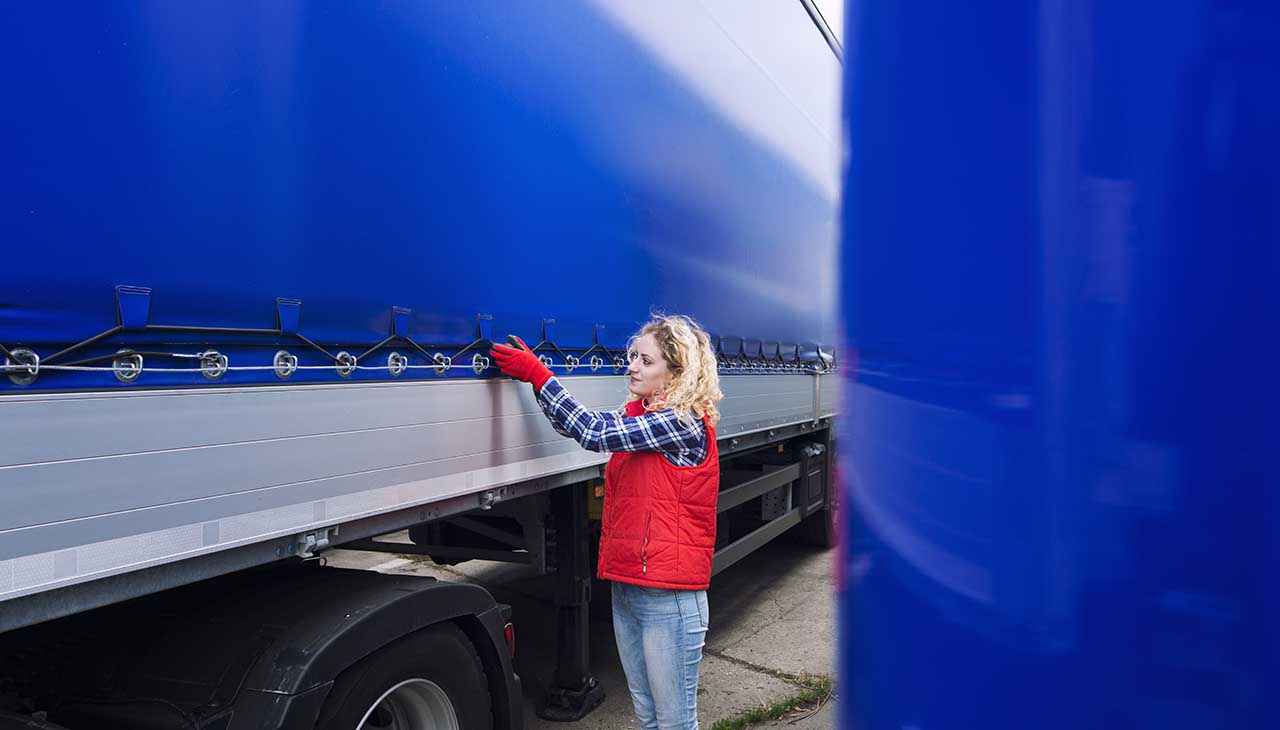
Female truck driver checking vehicle and tightening truck tarpaulin.
Introduction
Towing capacity is a crucial aspect for truck owners and outdoor enthusiasts alike. Whether you’re hauling a trailer, a boat, or a caravan, understanding your truck’s towing limits is essential for safety and performance. In this comprehensive guide, we’ll delve into what towing capacity is, the factors that affect it, and how you can ensure you’re towing safely and efficiently.
What is Towing Capacity?
Towing capacity refers to the maximum weight a truck can safely tow. This includes the weight of the trailer, its cargo, and any additional equipment. Exceeding your truck’s towing capacity can lead to severe mechanical failure, reduced vehicle longevity, and increased risk of accidents.
Why Towing Capacity Matters
- Safety: Overloading your truck can compromise braking, handling, and overall control.
- Vehicle Longevity: Excessive strain on your truck can lead to accelerated wear and tear on the engine, transmission, and brakes.
- Legal Compliance: Operating within your truck’s towing limits ensures you remain compliant with legal weight restrictions, avoiding fines and other penalties.
Factors Affecting Towing Capacity
Several factors influence a truck’s towing capacity. Understanding these can help you make informed decisions when choosing a vehicle or planning a haul.
Engine Size and Power
A larger, more powerful engine generally translates to higher towing capacity. Trucks with V8 or diesel engines usually offer greater towing capabilities than those with smaller, less powerful engines.
Transmission
Automatic transmissions are often better suited for towing heavy loads due to their ability to distribute torque more effectively. However, modern manual transmissions can also handle significant towing tasks if equipped with the right gear ratios.
Braking System
Robust braking systems are essential for safely towing heavy loads. Trucks equipped with advanced braking technologies, such as anti-lock braking systems (ABS) and electronic brake force distribution (EBD), usually offer higher towing capacities.
Suspension
A truck’s suspension system must be sturdy enough to support the additional weight. Heavy-duty suspension systems are designed to handle higher payloads and towing capacities.
Axle Ratios
Axle ratios play a significant role in a truck’s towing performance. Higher axle ratios provide more torque, essential for towing heavy loads, but may reduce fuel efficiency.
How to Calculate Your Truck’s Towing Capacity
Knowing your truck’s specific towing capacity is critical for safe and efficient towing. Here’s a step-by-step guide to help you determine it:
Step 1: Consult the Owner’s Manual
Your truck’s owner’s manual is the primary source of information about its towing capacity. Look for the section dedicated to towing.
Step 2: Check the GVWR
The Gross Vehicle Weight Rating (GVWR) is the maximum allowable weight of the truck, including passengers, cargo, and the trailer’s tongue weight. This information is usually found on a sticker inside the driver’s side door.
Step 3: Determine the GCWR
The Gross Combined Weight Rating (GCWR) is the total allowable weight of the truck and the trailer combined. Subtract the GVWR from the GCWR to get the maximum trailer weight your truck can tow.
Step 4: Verify with Manufacturer Guides
To ensure accuracy, cross-reference the figures in your owner’s manual with manufacturer guides or online resources.
Understanding Payload Capacity
While towing capacity is crucial, understanding payload capacity is equally important. Payload capacity refers to the maximum weight your truck can carry, including passengers, cargo, and the trailer’s tongue weight.
Differences Between Towing Capacity and Payload Capacity
- Towing Capacity: Maximum weight your truck can pull.
- Payload Capacity: Maximum weight your truck can carry in its bed and cabin.
Balancing Payload and Towing Capacity
It’s essential to balance both capacities to avoid overloading your vehicle. For example, if your truck’s payload capacity is 2,000 pounds and you’re carrying 1,000 pounds of cargo, you have 1,000 pounds left for the trailer’s tongue weight.
Common Mistakes and Misunderstandings
Even experienced truck owners can make mistakes when it comes to towing. Here are some common pitfalls and how to avoid them:
Ignoring the Trailer Weight
Always include the trailer’s weight in your calculations to avoid exceeding towing capacity.
Overlooking the Tongue Weight
The tongue weight is the downward force exerted by the trailer on the hitch. Ensure your truck’s hitch can handle the tongue weight to maintain stability and control.
Skipping Regular Maintenance
Routine maintenance is vital for ensuring your truck remains in optimal condition for towing. Neglecting this can lead to unexpected breakdowns and reduced towing performance.
Tips for Enhancing Towing Capacity
While you can’t change your truck’s inherent towing limits, you can optimize its performance for better towing capability.
Upgrade the Suspension
Heavy-duty suspension upgrades can improve your truck’s ability to handle heavier loads.
Install a Transmission Cooler
A transmission cooler helps prevent overheating, especially during long hauls or in hot conditions.
Use High-Quality Tires
Investing in high-quality, load-rated tires can improve stability and safety when towing heavy loads.
Regular Maintenance
Routine checks and maintenance of your truck’s engine, brakes, and suspension ensure it remains in top condition for towing.
Real-World Applications
Understanding towing capacity isn’t just theoretical—it’s practical knowledge that enhances your outdoor adventures and work efficiency.
Outdoor Trips
Imagine planning a camping trip with your family. Knowing your truck’s towing capacity ensures you can safely haul a camper or boat without risking mechanical failure or safety issues.
Work Efficiency
For those in construction or landscaping, understanding towing capacity means you can transport heavy equipment and materials efficiently, minimizing downtime and maximizing productivity.
Conclusion
Understanding your truck’s towing capacity is essential for safety, performance, and efficiency. By knowing the factors that affect it, how to calculate it, and common mistakes to avoid, you can ensure you’re towing within your truck’s limits.
We encourage you to share your insights and experiences in the comments below. For more information on trucks and towing, check out our related posts or contact us directly.
Stay safe and happy hauling!



